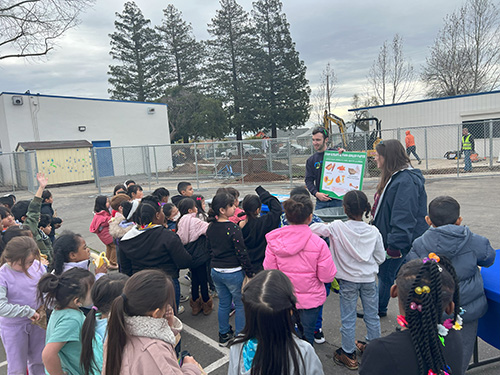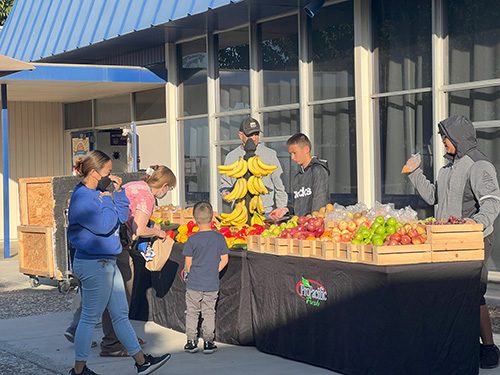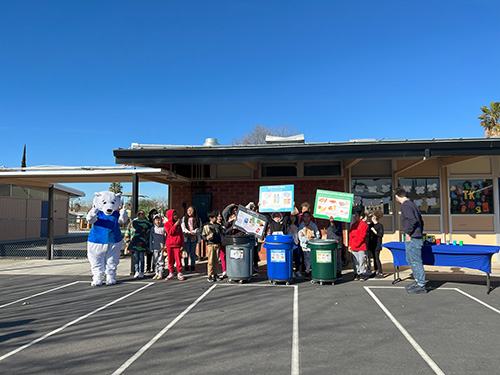
Fun at the Farmer’s Market!
As we move from summer to fall, we are excited about the positive impacts on the environment with the return of our Food Scraps & Recycling Program in Twin Rivers Unified School District (TRUSD). TRUSD is reintroducing their Farmer’s Market at K-8th elementary schools in the district to sample local, healthy produce to students. These markets encourage students to make sustainable and health-conscious decisions. The students first “purchase” their nutritious fruits and veggies with their Seal bucks and learn about their yummy foods. They then learn exactly how to dispose of their food waste after they are all done with their snacks with our food scraps team. Students will learn that their organic waste will turn into nutrient dense compost to feed the earth instead of rotting in landfills and contributing to air pollution.

Our Food Scraps & Recycling Program educates students on the importance of food scrap sorting for a more sustainable and healthier environment. We are excited to embark on a journey to educate ten additional schools this academic year. Knowledge is a catalyst for change, and through hands-on activities, and dynamic learning experiences, we’re equipping our youth to be ambassadors of a greener future. We will also be revisiting three schools we piloted last year to reaffirm their commitment to sustainable disposal practices and deepen our engagement with both students and educators. This year our team will be adding an element of composting to teach students how to compost at home with an adult!
One of the greatest experiences of the program is to see just how excited students are to make a positive change with their peers. They are intrigued to learn how their food waste is essentially recycled to feed the earth. Their eyes light up with wonder as they discover turning banana peels, apple cores, and lunchtime leftovers into nutrient-rich soil. Through activities and interactive lessons, students become proud stewards of the environment, empowered to make a real impact in their communities. The joy is contagious as they realize that every peel, every seed, and every effort contribute to a greener, more sustainable future. Some students become experts and volunteer to be super sorters! Super sorters maintain the waste stations and support their peers in the waste sorting process after lunch time.

Through responsible waste separation, the food waste will be converted into nutrient-rich compost, enriching the soil, and minimizing our carbon footprint. Simultaneously, the recycling aspect contributes to reducing waste in landfills, cultivating a culture of responsible consumption.